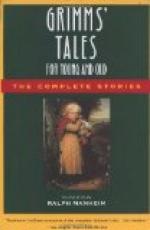On our way back from this singular scene, my cousin remarked that it had saddened me. ‘It would sadden you more,’ she continued, ’were you to know the history of the domestic wreck we have just left behind.’
‘That is precisely what I intended to inquire of you.’
’It is a deeply-affecting story; but’—and here the young lady blushed and hesitated—’I think it would not be right in me to reveal it. I believe I am the only person existing who knows the truth; and the means by which I obtained my knowledge would be deemed scarcely correct, though not perhaps exactly dishonourable.’
This avowal sharpened my curiosity, and I entreated her to say at least how she became possessed of the story.
‘To that there can be no objection,’ was the reply. ’In one of my rambles over the old house, I espied in a small escritoire a packet of letters bound up in tape, which was sealed at the ends. The tape had, however, been eaten by moths, and the letters liberated from it. Female curiosity prompted me to read them, and they gave me a full exposition of our great-aunt’s early history.’
During the rest of my stay in that part of the country, I never failed to urge my cousin to narrate the events which had brought Coote-down to its present melancholy plight. But it was not till I called to take leave of her, perhaps for ever, that she complied. On that occasion, she placed in my hands a neatly-written manuscript in her own handwriting, which she said contained all the particulars I required. Circumstances have since occurred that render it not indelicate in me to publish the narrative, which I do with but little alteration.
In the middle of the last century the proprietor of Coote-down was Charles James Hardman, to whom the estate lineally descended from a long line of ancestors. He was from his youth a person of an easy disposition, who minded very little, so that he could follow his ordinary amusements, and could see everybody around him contented; though his habits were too indolent to improve the condition of his dependants by any efforts of his own. At the age of twenty-five, he married the heiress of a baronet belonging to the northern side of the county. She was a beauty and a belle—a lady full of determination and spirit; consequently the very opposite to himself. She was, moreover, two years his senior. As was predicted by those who knew the couple intimately, the match was not productive of happiness, and they had been married scarcely a year and a half when they separated. It appeared that this unpleasant step was solely the fault of the wife; and her father was so incensed at her rash conduct, that he altered his will, and left the whole of his property to Hardman. Meanwhile, it was given out that the lady had brought her lord a son, and it was hoped that this event would prove a means of reconciling the differences which existed between them. Despite all entreaties, however, Mrs Hardman refused to return to her husband’s roof.




